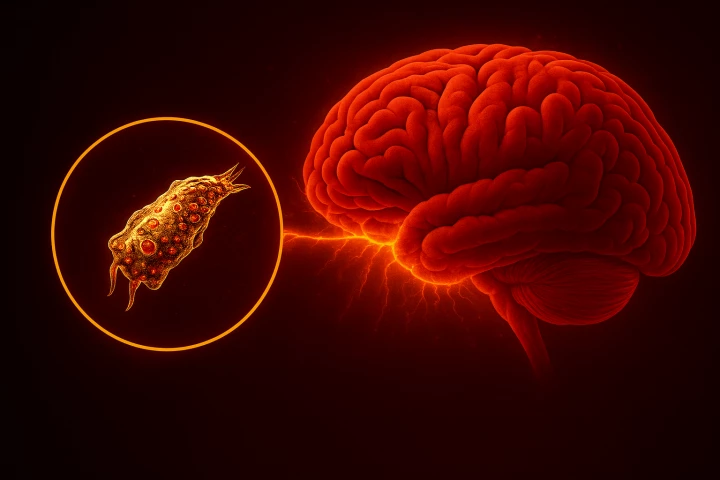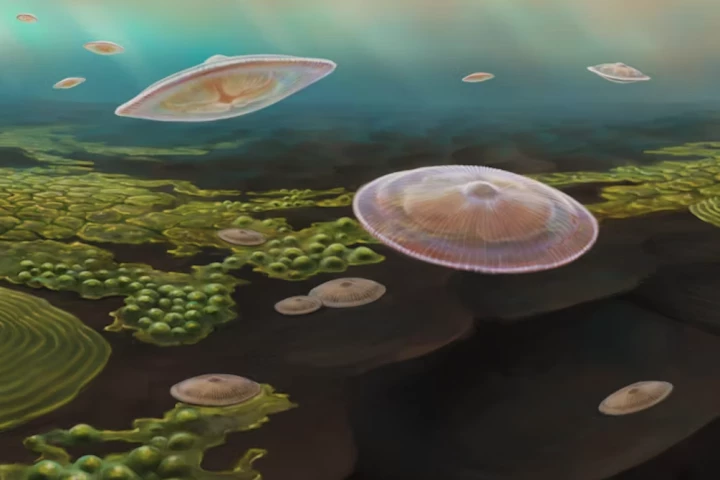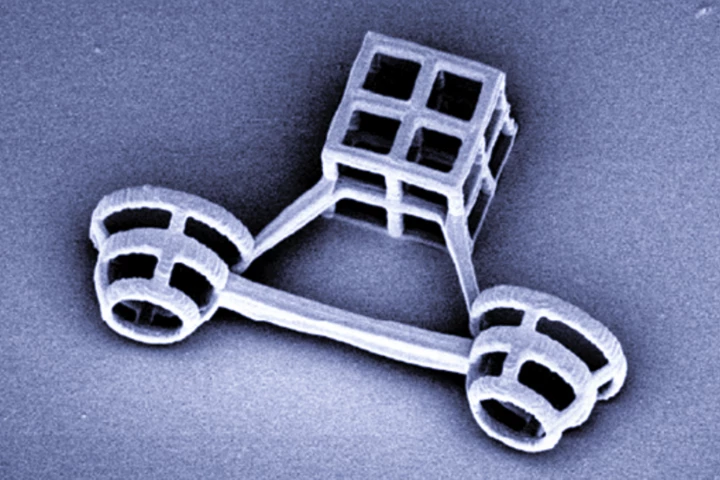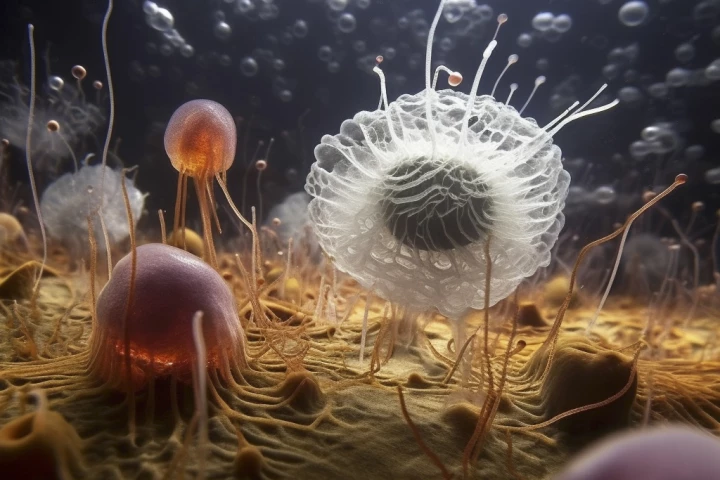Micro-organisms
-
One of the most dangerous microorganisms on Earth, Naegleria fowleri has a well-earned nickname as the "brain-eating amoeba," and infection almost always leads to death. Now it's infiltrated the treated drinking water supplied to two Australian towns.
-
Scientists have found evidence that an isolated pocket of complex life evolved 2 billion years ago – only to go extinct and take another 1.5 billion years to return to that level. The controversial find could rewrite our understanding of life on Earth.
-
From dog sleds to horse-drawn carts, animals have been pulling vehicles for thousands of years. Now, scientists in Tokyo have made what might be the smallest version ever, designing microscopic vehicles that can be pulled by single-celled algae.
-
Autism spectrum disorder is associated with distinct changes to the composition and functioning of a wide range of gut microorganisms, according to a new study. The findings pave the way for developing an accurate diagnostic test for the condition.
-
Abundant, diverse bacterial communities have been found deep beneath the almost uninhabitable surface of the Atacama Desert in Chile. The researchers who discovered them say they're likely 19,000 years old and could be linked to microbial life on Mars.
-
The four spikes on a new nanocrystal developed in Spain spin up under light and move through liquid, blasting any bacteria unfortunate to be in their path. The development could spell trouble for bacteria that resists traditional drug treatments.
-
Our bodies are home to trillions of microbes, including bacteria, viruses, fungi, and a whole host of others. Now, Stanford scientists have discovered an entirely new class of biological entities inside us, which they’ve ominously named “Obelisks.”
-
A 15-year project trying to build a synthetic yeast genome has hit a major milestone – yeast cells with more than 50% synthetic DNA for the first time. The team created synthetic versions of almost all its chromosomes plus a completely new one.
-
From an igniting match to a mouse embryo and a micrometeorite, the winners of the annual Nikon Small World photomicrography competition have been unveiled. As always, this year’s stunning images capture the wonder of the tiny hidden universe around us.
-
It sounds like a disaster movie: scientists recently revived worms frozen in the permafrost since the Ice Age. Now, these worms have been attributed to a new species, and seem to have passed down their incredible hibernation genes to modern relatives.
-
How small a canvas can evolution work on? Scientists have experimented with a synthetic lifeform designed to have the simplest possible genome, and found that given the chance it can evolve lost fitness back, showing that indeed, “life finds a way.”
-
Scientists have discovered evidence of a “lost world” of previously unknown lifeforms that inhabited Earth about a billion years ago. Fossilized steroids were identified in rocks all over the world, produced by a group called the "Protosterol Biota."
Load More











